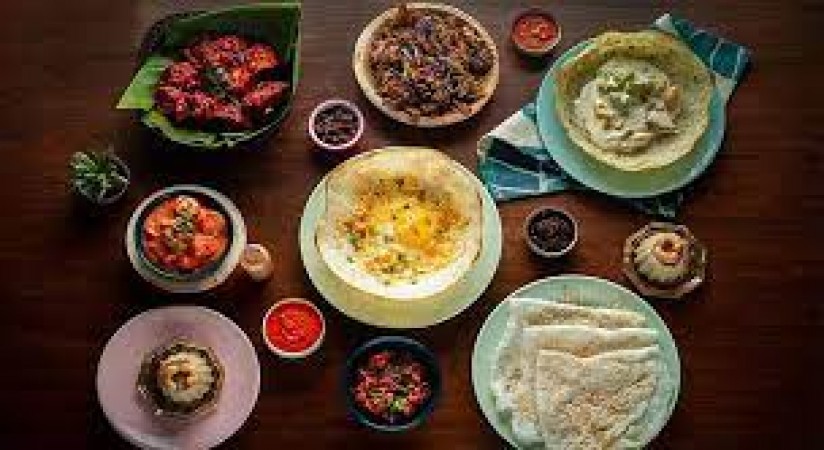
Food is an essential part of our lives, providing nourishment and pleasure. But have you ever wondered about the history and evolution of the food we eat today? In this article, we will delve into the fascinating journey of food, exploring its origins, transformations, and the impact it has had on human civilization.
1. The Origins of Food: Food has been a fundamental aspect of human existence since the dawn of time. In the early stages of human evolution, our ancestors relied on hunting and gathering to procure sustenance. They consumed wild plants, fruits, nuts, and animals for their survival.
2. Early Agricultural Practices: The transition from a nomadic lifestyle to settled communities brought about a significant change in food production. Around 10,000 years ago, humans began cultivating crops and domesticating animals. This agricultural revolution marked a turning point in history, leading to the development of civilizations and the growth of human populations.
3. Ancient Culinary Traditions: With the advent of agriculture, various ancient civilizations developed unique culinary traditions. The Egyptians, Greeks, Romans, and Chinese civilizations, among others, are renowned for their gastronomic practices. These civilizations pioneered cooking techniques, discovered new ingredients, and developed sophisticated culinary arts.
4. The Spice Trade and Globalization of Flavors: One of the most significant events in food history was the spice trade. Spices like pepper, cinnamon, and nutmeg were highly sought-after and influenced exploration and trade routes. The spice trade not only added new flavors to cuisines but also played a crucial role in shaping global geopolitics.
5. The Birth of Modern Gastronomy: The Renaissance period witnessed a resurgence of interest in food, leading to the birth of modern gastronomy. Prominent figures like Antonin Carême and Auguste Escoffier laid the foundations for classic French cuisine and culinary techniques that are still influential today.
6. Industrialization and Food Processing: The industrial revolution brought about significant changes in food production and processing. Technological advancements allowed for mass production, preservation, and transportation of food. Canned goods, refrigeration, and other innovations revolutionized the way we consume food.
7. Fast Food Culture and Convenience: The post-World War II era witnessed the rise of fast food and convenience foods. The introduction of fast-food chains and ready-to-eat meals transformed the way people eat. However, concerns about the health implications and environmental impact of such food choices have emerged in recent years.
8. Food as a Cultural Identity: Food is deeply intertwined with cultural identity. Each region and community has its own unique culinary traditions and flavors. Traditional dishes often reflect a community's history, geography, and available resources. Exploring different cuisines allows us to appreciate diverse cultures and connect with others through shared experiences.
9. Sustainable Farming and Ethical Food Choices: As awareness about environmental sustainability and animal welfare grows, many individuals are making conscious choices about the food they consume. Sustainable farming practices, organic produce, and ethical sourcing have gained prominence, reflecting a shift towards a more responsible and mindful approach to food.
10. The Future of Food: The future of food holds exciting possibilities. Advancements in technology, such as lab-grown meat, vertical farming, and alternative protein sources, have the potential to address global food challenges. Additionally, cultural fusion and culinary innovation continue to shape the food landscape, offering new tastes and experiences.
Conclusion: Food is not just sustenance; it is a reflection of our history, culture, and values. From the origins of food to the modern culinary landscape, the journey of food is a testament to human innovation and adaptation. As we move forward, it is important to appreciate the significance of our food choices and embrace a sustainable and inclusive approach to nourishment.
Dengue: Unveiling the Symptoms and Effective Remedies
Pets and Infectious Diseases: Do you know that your loving pets can also give you many diseases?
Discover the Healing Powers: 8 Incredible Health Benefits of Chamomile Herb